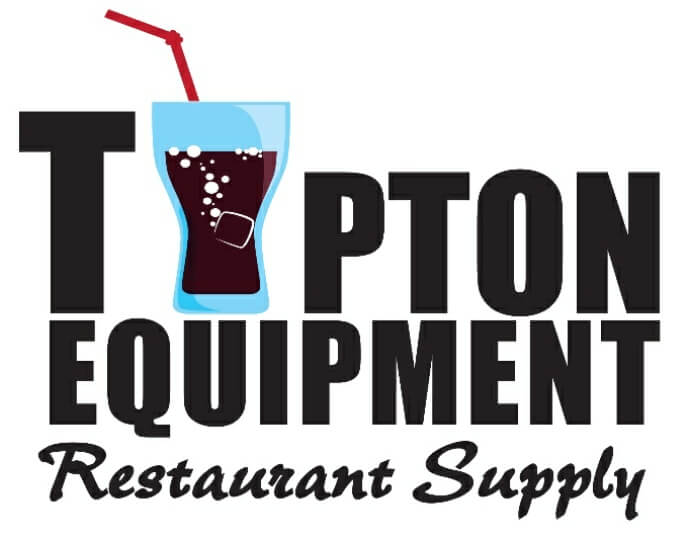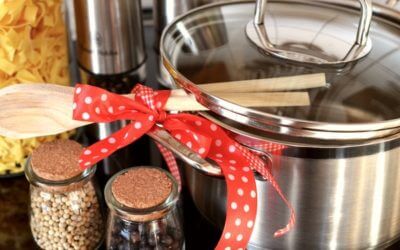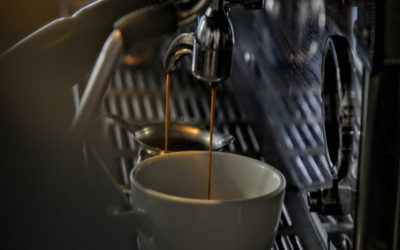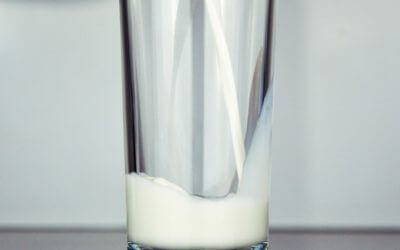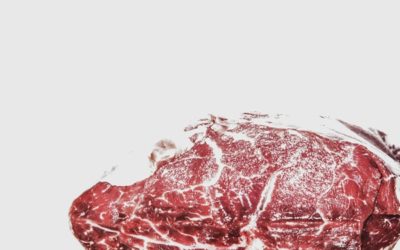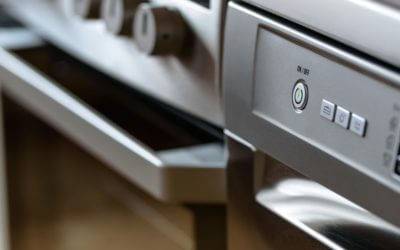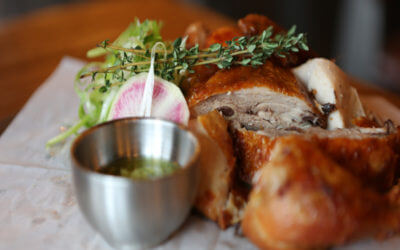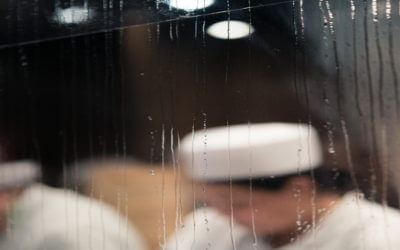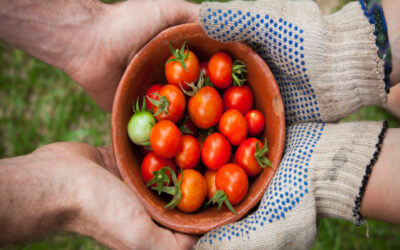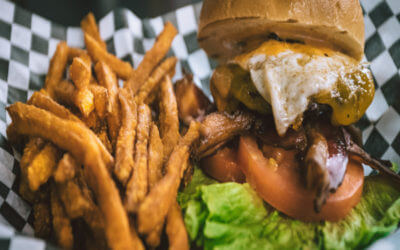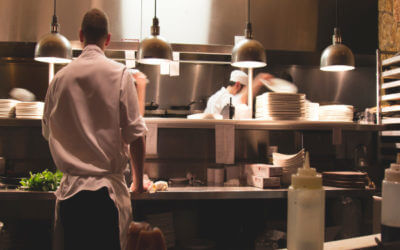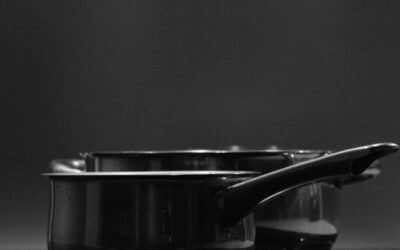Common Mistakes Made in the Kitchen
November 13, 2017We love watching the different food and cooking equipment on the Food Network.
Everything looks delicious, and the chefs are cooking and talking at the same time, making it seem effortless. A close up of the moist, savory meal pans across the screen. That show sparked some motivation in you, and now it’s your turn to attempt that same meal. Fast forward 5 minutes and there’s a burning smell while your smoke alarm is going off. How is it possible to burn water? If you’re needing some help on the culinary side, we have you covered. Here are some common mistakes home cooks make, and the cooking equipment that could fix it.
Don’t Overcrowd the Pan!
We can get so frustrated when our five steaks can be seared at once on the same pan. That’s probably because the pan is the size of a small frisbee. The cooking equipment is too crowded, and it’s not producing the results you wanted. This common mistake happens as you try to rush the cooking process. The solution is both to invest in a bigger pan and cook less at a time. If you are worried about your food getting cold, wrap it in foil to keep it warm, and let it rest.
Preparation is Key
You’re heating up oil in a pan ready to cook your chicken. You take it directly out the freezer, but you forgot to thaw it out. No worries, you place it on the pan anyways as an orchestra of pops and sizzles play in your kitchen. Now is the time where you are to chop the peppers. Except you don’t actually have the cooking equipment like a cutting board to do that. And this is where we wake up from a kitchen nightmare. Preparing your meals ahead of time before you cook them can save you time, trouble, and temptations to just give up and eat out. Thaw your proteins out at least an hour before hand, and chop your vegetables up before you start cooking. Another good idea is to lay out the spices you will need as well.
Taste as you Cook
You aren’t tasting your meal while you’re cooking your meal. Doing so will let you know how to adjust the flavors and spices that need to be added to your dish. It is better to know that your meal is (hopefully not) flavorless while you are cooking than after it is served. A useful cooking equipment is a spice rack. This way you can see all the spices that you have, and an easy way to find them.
The Kitchen isn’t the Only Thing that’s Hot
Contrary to popular belief, stoves have other settings beside on and off. You need to be able to control the heat. Overly hot temperatures can sear and burn, while low temperatures can result in undercooked food. Until you’re experience to recognize the perfect temperature, using a meat thermometer will help you know if it is ready to be served, which makes this a staple cooking equipment.
What’s in a Cooking Pot, How to Choose the Right One?
As a restaurant owner, your cooking needs might vary. Did you know that a good quality pot can greatly improve your cooking experience, while also improving the quality of your cooking? This cooking equipment is a very important one that cannot be done away with...
5 Things Every Restaurant Owner Should Do Before Buying Used Kitchen Equipment
Equipping your restaurant properly can cost a lot of money, so buying used kitchen equipment is the go-to choice for many restaurateurs. Buying used kitchen equipment for a restaurant is a bit different than buying used equipment for your home, however. You will...
Top Restaurant Technology Trends in 2018
When looking to buy restaurant supplies, you want to be on the leading edge of technology trends. This will keep your kitchen running smoothly. Let’s take a look at some of the most recent trends in restaurant supplies technology. 1. New Payment Options Who would...
5 Different Ice Shapes and Why You Should Care About Them
Ice makers are very popular in the restaurant and foodservice community because they eliminate the need to buy ice every day. And of course, adding an ice maker to your collection of foodservice equipment means you will always have ice on hand when you need it. An...
Pulping and Grinding: A Starter’s Guide to Reducing Commercial Food Waste Costs
For most restaurant owners and managers, the expenses involved in making meals are always under careful consideration. Water is needed to prepare, cook and wash food; power is necessary for food prep, cooking and cooling, and so on. However, how many of us consider...
Choosing the Right Milk Cooler: Cold Wall or Forced Air?
In a restaurant, milk is an essential to have on hand for coffee and other café-style beverages, for serving with kids’ meals, and as a key ingredient in many recipes. Keeping your milk properly chilled can be difficult without the proper restaurant equipment....
How to Choose Your Next Commercial Meat Smoker
The movies that connect with us on a personal level are the ones that linger in our memories forever. Anyone who has used a commercial meat smoker knows that they have a huge influence on the taste of a meal. You need to have just the right kitchen equipment to get a...
Are High Speed Ovens Too Good to be True?
You might have heard a few of the bold claims that foodservice equipment manufacturers have been making about high speed ovens, but they can’t be possible, right? Cooking three times as faster as regular ovens? Five times as fast? Fifteen times as fast? It may seem...
Choosing the Right Food Storage Containers for Your Restaurant
Choosing the right kitchen supplies will make a difference in your restaurant. Whether it is heavy duty kitchen equipment or food storage containers, each piece of equipment plays its own important role. Today, we are going to talk about how to choose the right food...
Tipton’s Guide to Perfect Poultry Trussing
Do you ever truss birds in your commercial kitchen? Trussing is a fantastic cooking technique because it makes poultry cook faster, look more attractive and taste better. If your commercial kitchen prepares poultry, you don’t want to miss these trussing tips. Trussing...
How to Eliminate Excess Condensation in Your Kitchen
Is your commercial kitchen getting steamy? If so, you could have more than just an uncomfortable working environment on your hands. Excess moisture in your commercial kitchen can result in the corrosion of equipment, the development of mold, and even damage to your...
The DIY Guide to Your Restaurant’s Own Garden
Stocking your restaurant supply with your own home-grown herbs and produce can truly bring your dishes to life. When it comes to food, everyone knows there’s nothing like homemade and home-grown. Having your own culinary garden, however large or small, can help you...
5 Reasons a Meat Grinder Will Set Your Burgers Apart
The more you do to prepare your foods in-house with the right kitchen equipment, the fresher and more flavorful your dishes become. There are all sorts of restaurants offering fast-food style burgers, but some diners are looking for the real deal. A fresh, juicy...
Pest Preventions to Implement in Your Commercial Kitchen
Restaurant pests: it’s something that few people want to think about. Like it or not, pest management is an essential consideration for every commercial kitchen. Offering food, shelter and water, the unprepared commercial kitchen naturally provides everything pests...
Choosing the Right Material for Your Cooking Equipment
Kitchens are very unique to their chef. Just like a car mechanic has a toolbox unique to them, so is the cooking equipment in a kitchen. And over time, the same cooking equipment become a natural extension of the chef. What tools are you using in your kitchen? It...
